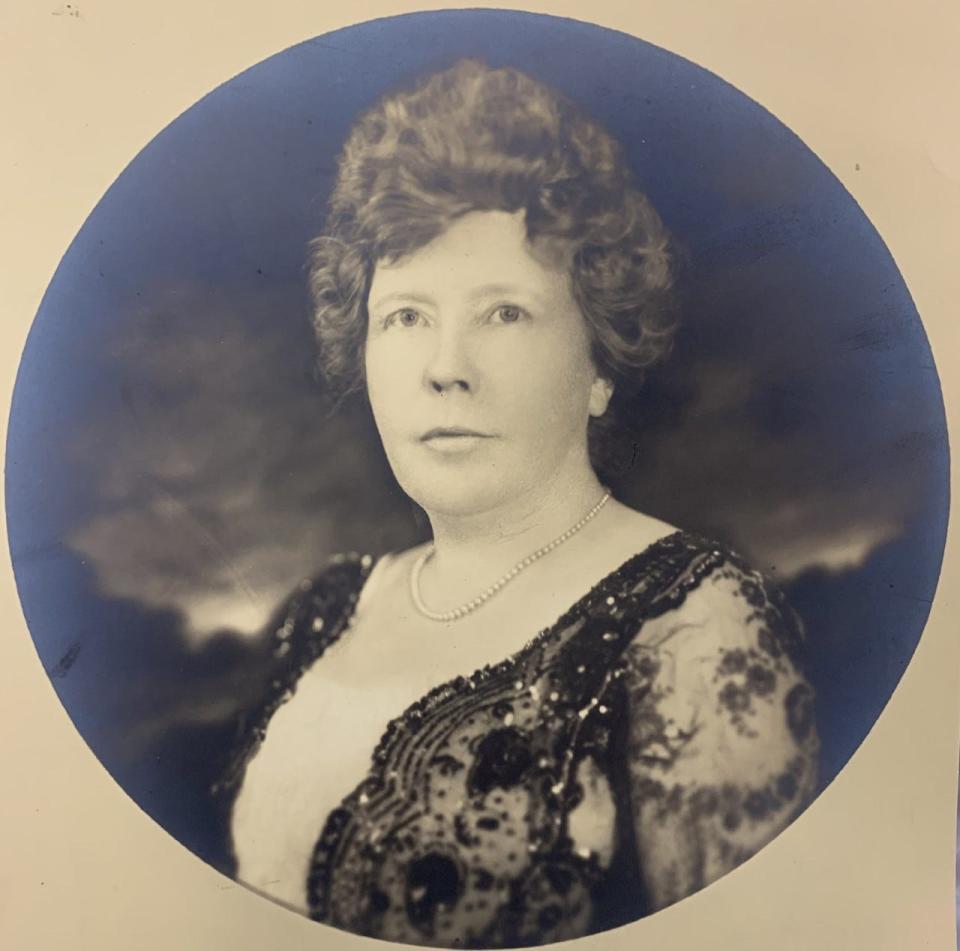Steve VanderVeen: The city's first leader of high culture — Martha Diekema Kollen
Martha Diekema Kollen was Holland’s first leader of high culture.
Martha was born in 1867 to Wiepke and Hendrikje Stegeman Diekema. She was the last of eight children.
Wiepke emigrated from the Netherlands in 1848 at the age of 18. Like many of the first Dutch settlers, he worked several jobs, including at a sawmill, until he had enough money to buy land. That land was near “The Landing” and burial mounds on the south side of Lake Macatawa, near present-day Heinz, which he purchased from the Odawa (Ottawa).
Also like many of the first Dutch settlers, the Diekema family faithfully gathered every evening to read and discuss a Bible passage. Unlike many such families, however, the Diekemas spoke English in the home, worshiped with other English-speaking colonists at Hope Church, and encouraged the study of the humanities.
So much so that, after attending Hope Preparatory School, Martha took the unprecedented step of furthering her education at Columbia University in New York City.

In 1894, Martha married George Kollen, the same year George’s brother became Hope College’s third president. George, however, had different interests, one of which was the burgeoning field of corporate law, made popular by the expansive interstate railroads.
This form of business organization made it easier for companies to raise capital and scale their operations. That specialty and investments in real estate made George a wealthy man. Still, George and Martha stayed in Holland, making their home at 80 W. 13th Street. George partnered with Martha’s brother, Gerrit, at the firm Diekema, Kollen and Ten Cate. Martha would lead in different ways.
In 1894, she joined Anna Post, and her neighbor, Kate Garrod Post, at the Bayview Reading Club. In 1897, George and Martha joined the Century Club, a group of 100 members of Holland’s new aristocracy, to enhance the literary, musical and social entertainment of its members.
One year later, Martha helped transform the Bay View Reading Club into the Woman’s Literary Club, to “further intellectual improvement, and to diffuse useful information,” and then served as its president from 1899-1911. Under her influence, both clubs would host grand dinners, meet in each other’s homes, listen to recitals, and study European history.
But the highlight of George and Martha’s social calendar was an invitation to a Feb 4, 1904, dinner party at the White House from President Theodore and Edith Roosevelt.
Martha’s influence would go deeper. In 1914, after the state allowed women to vote on bond and school board issues — and before it and the national government allowed them to vote in elections — the community elected Martha to the school board, making her the first woman to hold that position. She did so for 30 years.
Martha was also the first female superintendent of schools, following the likes of George Hummer and Charles McLean. She held that position for 10 years. Meanwhile, she taught Sunday School at Hope Reformed Church for 40 years.

When not serving, George and Martha traveled by automobile to Florida in the winter, Castle Park in the summer, and frequently to Grand Rapids and Chicago, and by boat to Europe. George died in 1919. After his death, Martha took transatlantic voyages to Europe, first to visit her son, John, who was studying piano in France, and later to tour North Africa, the Near East and the Holy Land. Then, back home, Martha would share what she'd learned.
Subscribe:Get all your breaking news and unlimited access to our local coverage
Still, one of Martha's greatest joys was purchasing the “King Property” in 1921 from Con DePree and giving it to the city of Holland in the name of George E. Kollen to be used as a park. In response, in the summer of 1929, the city hired four “expert swimmers” as lifeguards and swimming instructors. For 45 days that summer, average attendance was 650. In 1930, the city transferred band concerts to the park.
In 1949, Martha became the first woman to receive an honorary doctorate in literature from Hope College. She died on April 27, 1960, in Ann Arbor, at the home of her son, John, a professor of music at the University of Michigan. Later that year, he served as a guest conductor for the American Legion Band when the city held a special memorial concert at the George E. Kollen Park under its newly installed band shell.
Information for this story comes primarily from Jan Osterhaven’s “Martha Diekema Kollen,” available at the Joint Archives.
— Community Columnist Steve VanderVeen is a resident of Holland. Contact him through start-upacademeinc.com.
This article originally appeared on The Holland Sentinel: Holland History: The city's first leader of high culture — Martha Diekema Kollen
